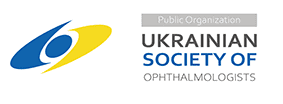Comparative analysis of the impact of selected anesthesia methods on the cognitive function of patients undergoing ophthalmic surgery
DOI:
https://doi.org/10.31288/oftalmolzh202322125Keywords:
pentylenetetrazol kindling, chronic epileptic syndrome, retinopathy, niacin-oxy-ethylidene-phosphonate germinate (MIGU-4), neuroprotectionAbstract
Background: Anesthesiologists should not only save patient’s life as a process, but also enable the patient to recover his/her social life after surgery, given increased longevity, high social activity throughout life, and increased use of technical equipment in everyday life.
Purpose: To assess central nervous system (CNS) changes in patients undergoing penetrating keratoplasty in order to optimize the choice of anesthesia technique, while taking into account the impact of general anesthesia on postoperative cognitive functions.
Material and Methods: We employed neuropsychological tests such as Mini-Mental State Examination (MMSE), Frontal Assessment Battery (FAB) and Luria’s test to examine the cognitive function of patients before surgery and 6 hours, 24 hours, 7 days and 21 days after surgery.
Results: On the basis of comparative analysis of the impact of selected anesthesia methods on cognitive function of patients undergoing surgery (penetrating keratoplasty), we concluded that a combination of regional anesthesia (pterygopalatine fossa blockade), dexmedetomidine infusion (0.3 µg/kg) and general analgesia (maintenance in an oxygen/sevoflurane mixture) with exclusion of Sibazon 0.5% had the shortest and the least profound impact on the cognitive function.
Conclusion: On the basis of comparative analysis of the impact of selected anesthesia methods on cognitive function of patients undergoing penetrating keratoplasty, we concluded that a combination of regional anesthesia (pterygopalatine fossa blockade), dexmedetomidine infusion (0.3 µg/kg) and general analgesia (maintenance in an oxygen/sevoflurane mixture) with removal of Sibazon 0.5% from premedication and presence of a reduced amount of fentanyl used during anesthesia had the shortest (with a mean duration of a day) and the least profound impact on cognitive state in patients undergoing ophthalmic surgery.
References
Новицкая-Усенко ЛВ. Послеоперационная когнитивная дисфункция в практике врача-анестезиолога. Медицина неотложных сотояний.2017;83(4):9-15.
Усенко ЛВ, Кріштафор АА, Полинчук ИС, Тютюнник АГ, Усенко АА, Петрашенок ЕВ. Послеоперационные когнитивные расстройства как осложнение общей анестезии. Значение ранней фармакологической нейропротекции. Медицина неотложных состояний. 2015;65(2):24-31. https://doi.org/10.22141/2224-0586.2.65.2015.79419
Трінус КФ. Когнітивні розлади та вестибулярні порушення. Міжнародний неврологічний журнал. 2014; 3 (65). https://doi.org/10.22141/2224-0713.3.65.2014.81140
Калашник Л. Лечение когнитивного дефицита при болезни Альцгеймера. Нейро Neys психоневрологія та нейропсихіатрія.2016;10(84):42-46.
Ayvardgi AA, Kobeliatskyy YuYu. ANI-monitoringin assessing the effectiveness of the anesthetic management for plastic surgery of the nose. Emergency medicine. 2018. №1(88): 103-107.
Antonomonov MYu. [Mathematical processing and analysis of biomedical data]. Kyiv; 2017:578.
Downloads
Published
How to Cite
Issue
Section
License
Copyright (c) 2023 Олена Алексєєва, Г. С. Дорофєєва , В. П. Алексєєв , І. А. Драпак

This work is licensed under a Creative Commons Attribution 4.0 International License.
This work is licensed under a Creative Commons Attribution 4.0 International (CC BY 4.0) that allows users to read, download, copy, distribute, print, search, or link to the full texts of the articles, or use them for any other lawful purpose, without asking prior permission from the publisher or the author as long as they cite the source.
COPYRIGHT NOTICE
Authors who publish in this journal agree to the following terms:
- Authors hold copyright immediately after publication of their works and retain publishing rights without any restrictions.
- The copyright commencement date complies the publication date of the issue, where the article is included in.
DEPOSIT POLICY
- Authors are permitted and encouraged to post their work online (e.g., in institutional repositories or on their website) during the editorial process, as it can lead to productive exchanges, as well as earlier and greater citation of published work.
- Authors are able to enter into separate, additional contractual arrangements for the non-exclusive distribution of the journal's published version of the work with an acknowledgement of its initial publication in this journal.
- Post-print (post-refereeing manuscript version) and publisher's PDF-version self-archiving is allowed.
- Archiving the pre-print (pre-refereeing manuscript version) not allowed.












